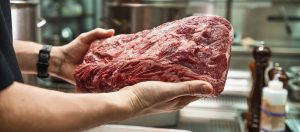
BRITISH COLUMBIA – It will be easier for BC families to buy, serve and enjoy beef, pork and poultry raised in their own communities under a new meat licensing system that supports farm businesses in rural parts of the province and makes it easier to sell locally raised meat in BC.
“We’ve worked with ranchers, abattoir operators, health authorities and local governments to increase the amount of locally raised meat in rural communities,” said Lana Popham, Minister of Agriculture, Food and Fisheries. “The new meat licensing system will increase food production, support regional food security, stimulate local economies and prioritize food safety.”
The system will use three licence categories that recognize and support the different sizes of meat processing and livestock businesses in the province.
A farmgate licence has been created to help new and small-scale producers sell their products locally and fill the demand for local meat products in rural communities. With this licence, producers can sell from their farmgate or at farmers markets within their regional district and at farmers markets within a 50 kilometre radius of their farm if they border a different regional district.
A second category, farmgate plus, will replace current Class D and E licences. It will be available provincewide and will help alleviate ranchers’ and producers’ concerns about accessing processing services, as well as provide new sales opportunities at farmers markets, retail shops and restaurants.
A new abattoir licence will replace current Class A and B licences. It is synchronized with existing business and licence procedures, and will continue to offer fully inspected meat production with no restriction on volume or sales within BC.
All licences will be valid for a five-year term and will be effective Oct. 1, 2021, with existing licensees transitioning automatically. BC Association of Abattoirs The new licence framework follows in-depth consultation with ranchers, abattoir operators, local governments and meat producer organizations, including the Alberni-Clayoquot Regional District, BC Association of Abattoirs, BC Cattlemen’s Association, First Nations Agricultural Association of BC, Northern Rockies Regional Municipality and Small-Scale Meat Producers Association.
The changes are the latest the BC government has made since 2017. They are part of an ongoing partnership with BC ranchers, abattoir operators and local governments to increase food production and security in rural communities.


